Are clogged drain pipes causing frustration in your bathroom? Don’t worry, you’re not alone. Keeping your bathroom drains clean is essential for proper hygiene and functionality. In this article, you’ll learn simple and effective methods to clean your drain pipes and prevent future clogs. Say goodbye to plumbing problems with our tips!
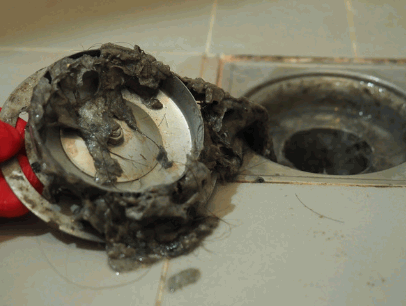
Why Do Drain Pipes Need To Be Cleaned?
It is important to regularly clean drain pipes in order to prevent clogs, eliminate foul odors, and maintain proper hygiene. Over time, debris, hair, soap scum, and other residues can build up within the pipes, causing blockages and unpleasant smells. By regularly cleaning the pipes, you can ensure smooth water flow and a clean, fresh bathroom environment.
Explore: How To Clean Drain On Air Conditioner
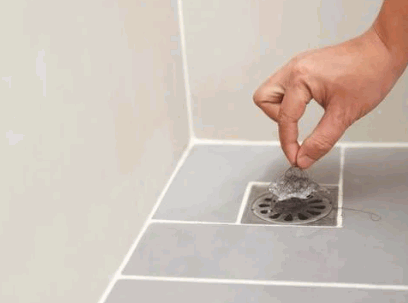
What Are The Signs Of Clogged Drain Pipes?
Before diving into the steps for cleaning drain pipes in the bathroom, it is important to understand the signs of a clogged drain. In this section, we will discuss three common indicators that your drain pipes may be in need of a thorough cleaning. From slow-draining water to unpleasant odors, these signs can help you identify and address a clogged drain before it becomes a bigger issue. So, let’s take a closer look at the signs to watch out for.
1. Slow Draining Water
- Inspect the drain for any visible blockages such as hair or debris.
- Pour boiling water down the drain to dissolve any accumulated grease or soap residue.
- Use a drain snake to dislodge and remove any deeper clogs.
- As a last resort, consider using a chemical drain cleaner if other methods fail to resolve the issue of slow-draining water.
To prevent the problem of slow-draining water, regular maintenance, and mindful usage can help keep your drain pipes clean and flowing smoothly.
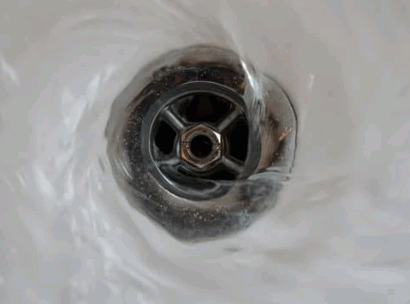
2. Unpleasant Odors
- Check for any food particles or debris stuck in the drain.
- Pour a mixture of baking soda and vinegar down the drain to eliminate any unpleasant odors.
- Use a drain snake to remove any organic matter causing the odors.
Fact: Unpleasant odors from drains can attract pests like fruit flies, so it’s important to address them promptly.
3. Water Backing Up
- Check for water backing up in sinks, showers, or tubs.
- Observe if water is slow to drain or overflows.
- Take note of gurgling sounds from drain pipes.
What Are The Causes Of Clogged Drain Pipes?
Clogged drain pipes can be a major inconvenience in any bathroom. They can lead to slow draining, unpleasant odors, and even complete blockages. But what causes these pesky clogs in the first place? In this section, we will explore the common culprits that contribute to clogged drain pipes. From hair and soap scum buildup to grease and food particles, and even mineral and hard water deposits, understanding the causes of clogged drain pipes is the first step towards preventing and resolving them.
1. Hair And Soap Scum Buildup
To prevent hair and soap scum buildup in drain pipes, follow these simple steps:
- Use a drain cover to catch hair and large particles.
- Regularly clean the drain with a mixture of vinegar and baking soda.
- Be mindful of what goes down the drain, avoiding excessive soap and hair.
Fun Fact: Hair accumulation is one of the main causes of clogs in bathroom drains, with the average person shedding between 50 to 100 strands of hair daily.
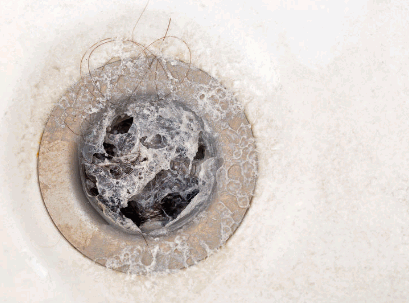
2. Grease And Food Particles
- Before rinsing dishes, be sure to scrape off any food particles.
- Instead of washing them down the drain, dispose of oil and grease in the trash.
- To prevent grease and food particles from entering the drainage system, consider installing a grease trap.
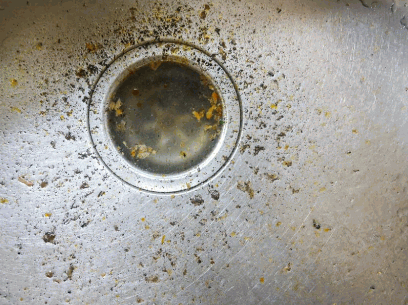
3. Mineral And Hard Water Deposits
- Mineral and hard water deposits are a common cause of clogged drain pipes, which may require specialized cleaning methods.
- A mixture of vinegar and baking soda can be used as a homemade solution to dissolve mineral deposits.
- If dealing with hard water deposits, it may be beneficial to use a commercial descaling agent specifically designed to target mineral buildup.
Pro-tip: To prevent mineral and hard water deposits, consider installing a water softener system to reduce the mineral content in your water supply.
How To Clean Drain Pipes In Bathroom?
Dealing with clogged bathroom drain pipes can be a frustrating and unpleasant experience. But fear not, as there are simple methods you can use to clean them out and get your drains flowing smoothly again. In this section, we will discuss three effective techniques for cleaning drain pipes in the bathroom. From using a plunger to homemade drain cleaners and even a plumbing snake, we’ve got you covered with the best tips and tricks to keep your bathroom pipes clean and clear.
1. Use A Plunger
- Start by making sure the plunger completely covers the drain opening.
- Next, fill the sink or tub with enough water to cover the cup of the plunger.
- Position the plunger over the drain, making sure to create a tight seal, and vigorously push and pull it.
- Repeat this plunging motion several times until the water starts to drain smoothly.
- Once the clog is cleared, run hot water to flush out any remaining debris.
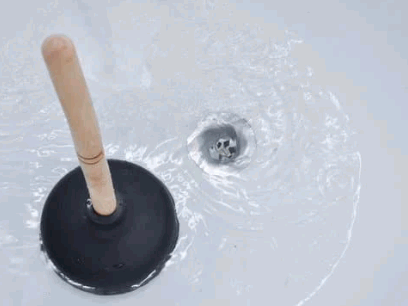
2. Try A Homemade Drain Cleaner
- Mix 1 cup of baking soda with 1 cup of vinegar and pour it down the drain.
- Let it sit for 30 minutes and then flush with hot water.
- Alternatively, pour 1/2 cup of salt and 1/2 cup of baking soda followed by boiling water.
Pro-tip: Regular maintenance using this method can prevent major clogs, keeping your pipes clean and odor-free.
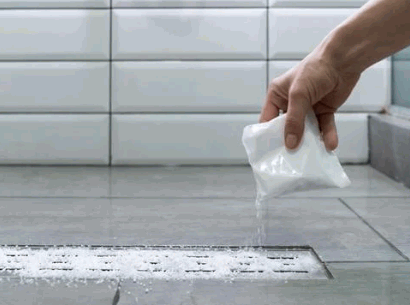
3. Use A Plumbing Snake
- Wear protective gloves and safety goggles.
- Insert the plumbing snake into the drain and rotate the handle to dislodge the clog.
- Gently pull out the snake to remove the debris causing the blockage.
- Run hot water down the drain to clear any remaining residue.
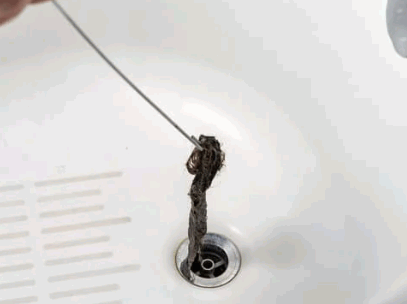
Preventing Clogged Drain Pipes
Clogged drain pipes can be a major inconvenience and can lead to costly repairs. However, by taking a few simple preventative measures, you can avoid the hassle and expense of dealing with clogged drains. In this section, we will discuss effective ways to prevent clogs in your drain pipes. From using a drain cover to regularly cleaning the pipes, and being mindful of what goes down the drain, we will provide you with practical tips to keep your bathroom drains running smoothly.
1. Use A Drain Cover
- To prevent clogged pipes, place a drain cover over the drain to catch hair, soap scum, and other debris.
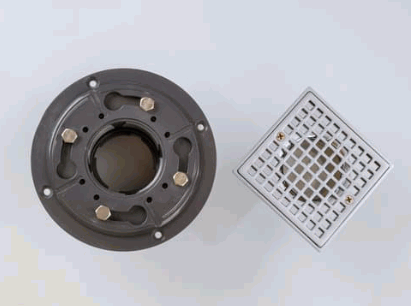
2. Regularly Clean The Drain Pipes
- Use a homemade drain cleaner made of baking soda, vinegar, and hot water to clear buildup regularly.
- Consider scheduling professional drain cleaning services every 6-12 months.
- Be mindful of what goes down the drain to prevent clogs, such as hair, food particles, and grease.
Regularly Clean the Drain Pipes to prevent costly clogs and maintain a healthy plumbing system.
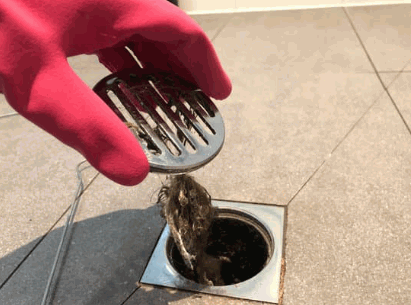
3. Be Mindful Of What Goes Down The Drain
- Remember not to pour grease or oil down the drain.
- Avoid the buildup of food particles in the drain.
- Utilize a drain strainer to catch hair and soap scum.
When To Call A Professional Plumber?
If you are experiencing persistent clogs, foul odors, or slow drainage despite your DIY efforts, it may be time to call a professional plumber. Issues such as water backing up, gurgling sounds or visible water damage should also be addressed by a professional.
Pro-tip: Keep your drainage system well-maintained by using a hair catcher in the shower and avoiding pouring grease down the kitchen sink.




